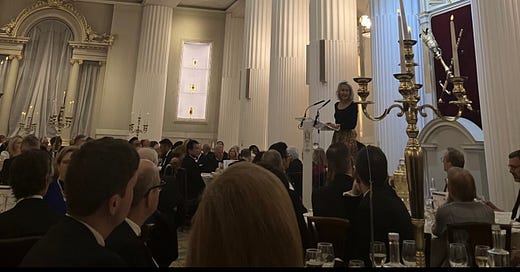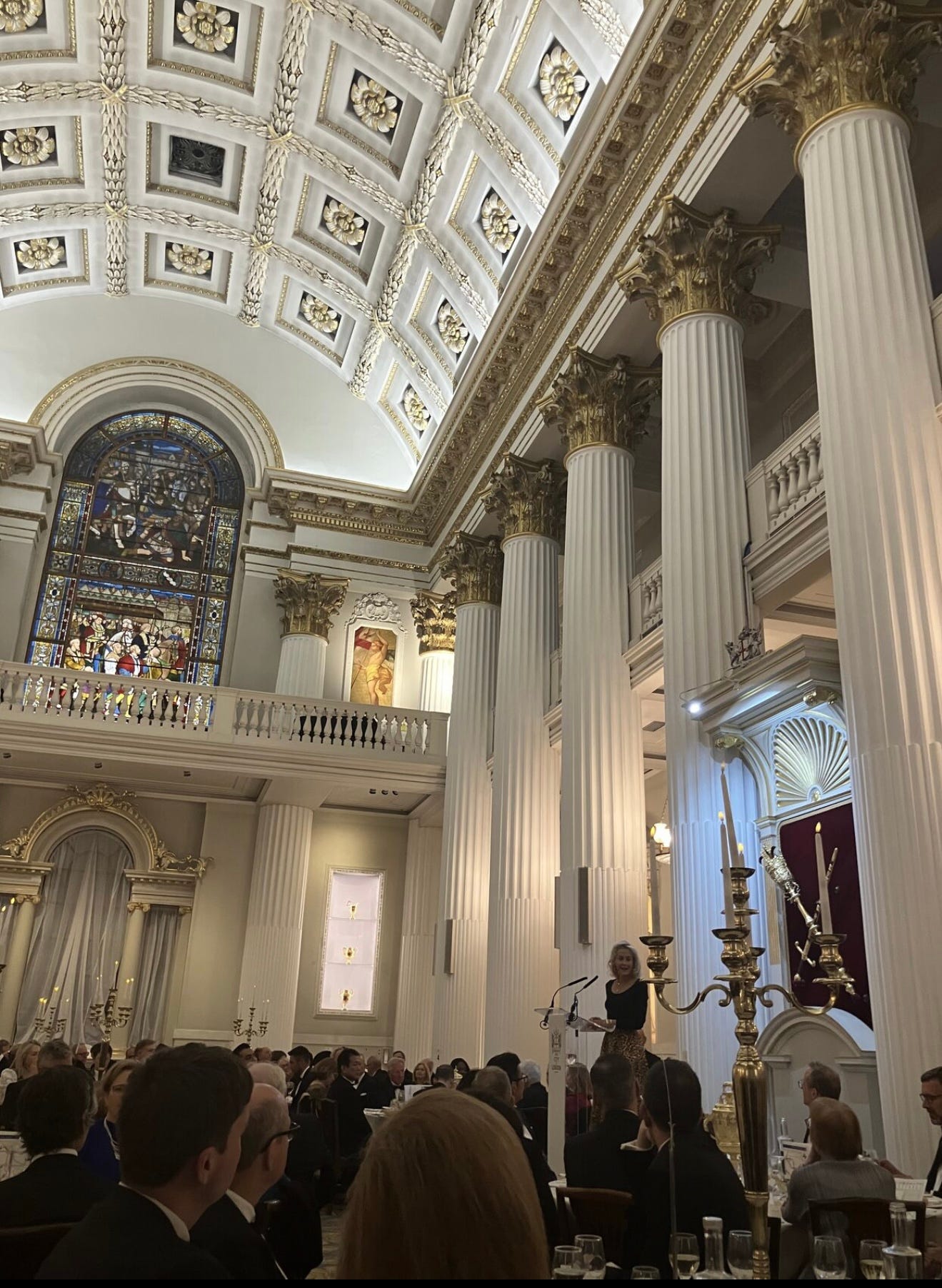The confidence trick
From Bradford to Los Angeles to Mansion House in the City - the confidence of places
One of the questions I’ve been asked most often over the last thirty years is: where does your confidence come from? It’s not an easy thing to analyse in yourself. But I’ve always believed mine has been shaped by three things: a loving family, the freedom to take risks, and a life of relative privilege.
Lately, though, I’ve been thinking less about the confidence of individuals—and more about the confidence of places.
What makes a city, region or country project belief in its future? It’s a question that’s been on my mind after a whirlwind eight-day journey from Bradford to Los Angeles and back to the City of London. Three places, three very different moods—and three very different stories of confidence.
Let’s start in West Yorkshire.
Bradford’s story is well known: once a titan of the Industrial Revolution, its booming mill industry attracted generations of migrants from Pakistan and India, adding layers of cultural richness and economic dynamism. But the last few decades have been far tougher—economic decline, social tension, unrest. For too long, the city has been seen by some as problematic.
And yet, walking through the centre on a bright spring day and meeting with the Chamber of Commerce, I didn’t find a place in retreat. I found a city busy reinventing itself.
Bradford is currently the UK’s City of Culture. It’s reshaping its public realm—pedestrianised streets, new cultural spaces—and it has the youngest population of any UK city. Its university produces more AI graduates than any other. That matters. AI is not a niche concern anymore—it’s going to transform everything from logistics to law. Bradford’s combination of technical capability and youth could be rocket fuel for renewal.
But what struck me most wasn’t a single policy or building project. It was the tone of the local leadership. Despite significant financial pressures and patchy infrastructure, the people I met projected steady, grounded optimism. They weren’t sugar-coating the challenges. But they believed in Bradford’s future—and that belief was infectious.
It reminded me of something I’ve come to believe deeply: leaders set the emotional temperature of a place. When they speak with ambition, others follow. When they model resilience, others dig in. Confidence, it turns out, can be contagious.
Then—whiplash. Twenty-four hours later, I landed in Los Angeles to speak at the Milken Conference. It’s corporate America at full tilt, with a healthy (or maybe unhealthy) splash of political swagger. I joined a dinner featuring Scott Bessent, was at a tech leaders roundtable, took part in a session on Europe, and heard more pronouncements about the future than a Black Mirror writer’s room.
The dominant mood? Triumph.
One speaker opened a session by declaring, “The US won the internet. Now we’re winning AI.” I couldn’t resist: “If winning means hoarding data, consolidating power in the hands of a few, and unleashing tools we barely understand—then sure, you’ve won.”
There’s a fine line between confidence and hubris. And while I admire America’s energy and boldness, I was struck—frankly, a bit alarmed—by how uncritical the overarching narrative had become. The top topics? Tariffs, war, trade, tech. Climate change barely got a look in. No one questioned whether AI might be reinforcing inequality, or whether geopolitical posturing might backfire. Other countries, when they were mentioned at all, were presented as either investment vehicles or competitors to be neutralised.
Europe, if it came up, was met with curiosity but also scepticism. The old adage “Live in Europe, invest in the US” summed up the mood. Three people even asked me “Why is your government so determined to make it hard to run a business?”
At a couple of talks, it was the UAE, Saudi and Qatar that were the countries attracting the most attention. Something had definitely shifted.
So: back home. To Mansion House. Speaking at the City of London’s International Trade Dinner was its own test of confidence for me. Surrounded by hundreds of business leaders, with chandeliers twinkling and centuries of British commerce gazing down from the paintings, it would have been easy to be overwhelmed. But I was still thinking about Bradford’s optimism and LA’s bravado—and wondering: where does Britain sit on this spectrum? I made three points.
First: values matter. We must be clear about what kind of economy we want to build—future-facing, diverse, sustainable. These aren’t PR slogans; they are business imperatives. Right now, AI adoption among UK small and medium-sized businesses is dangerously low. We can’t afford that gap. We need more digital ambition, everywhere.
We also need to move beyond tick-box diversity. That means backing people from all walks of life with the finance and support to build things—because innovation doesn’t just come from the same places or people. And we can’t let climate commitments slide off the agenda. Building for long-term value—social, environmental, and financial—has to be the goal.
Second: collaboration. No country thrives in isolation. The UK has remarkable strengths—our universities, our creative industries, our legal system—but we will squander them if we turn inward. The fallout from Brexit cannot be underestimated but we still have plenty of ways to make new partnerhips.
Third: we need to rediscover our sales instinct. British business culture tends to underplay, to self-deprecate, to say “well, it’s quite good really” when it’s actually world-class. That might be charming, but it won’t cut it in a global market. Confidence isn’t about swagger—it’s about being ready to make the case for yourself, again and again and again. Every founder knows: belief is part of the product. No one is waiting for Britain to knock on their door. We must create our own opportunities and that requires relentless effort and a willingness to sell our story to the world.
Bradford taught me that local pride, rooted in action, is powerful. LA reminded me that confidence can tip into delusion—but that scale needs a story. And London? London, for all its heritage, has always had a capacity to reinvent.
Confidence isn’t just a personal trait. It’s an economic force. A community asset. A national advantage. And right now, it might be one the most under-rated levers we have for growth.




Your analysis of how leaders present themselves is really fascinating. Part of that confidence comes with alignment with inner values. I find the values that from where I am sitting seem to be prevalent in the US political system truly alarming. Mark Carney in Canada is phenomenal, in his absolute confidence and belief in what he is doing. Keir Starmer is the absolute opposite- a couple of times recently I’ve had the impression that he was near to tears. But I see a leadership in the UK that is not trying to lead from its own values, but one which is trying to adopt a watered down version of its adversary’s values, presumably in the hope of appeasing more people.
Dear Martha, never met you, probably never will, but I’d follow you when you have the clarity of vision, values and communication in this post. Unfortunately the very best people never want to be PM!!